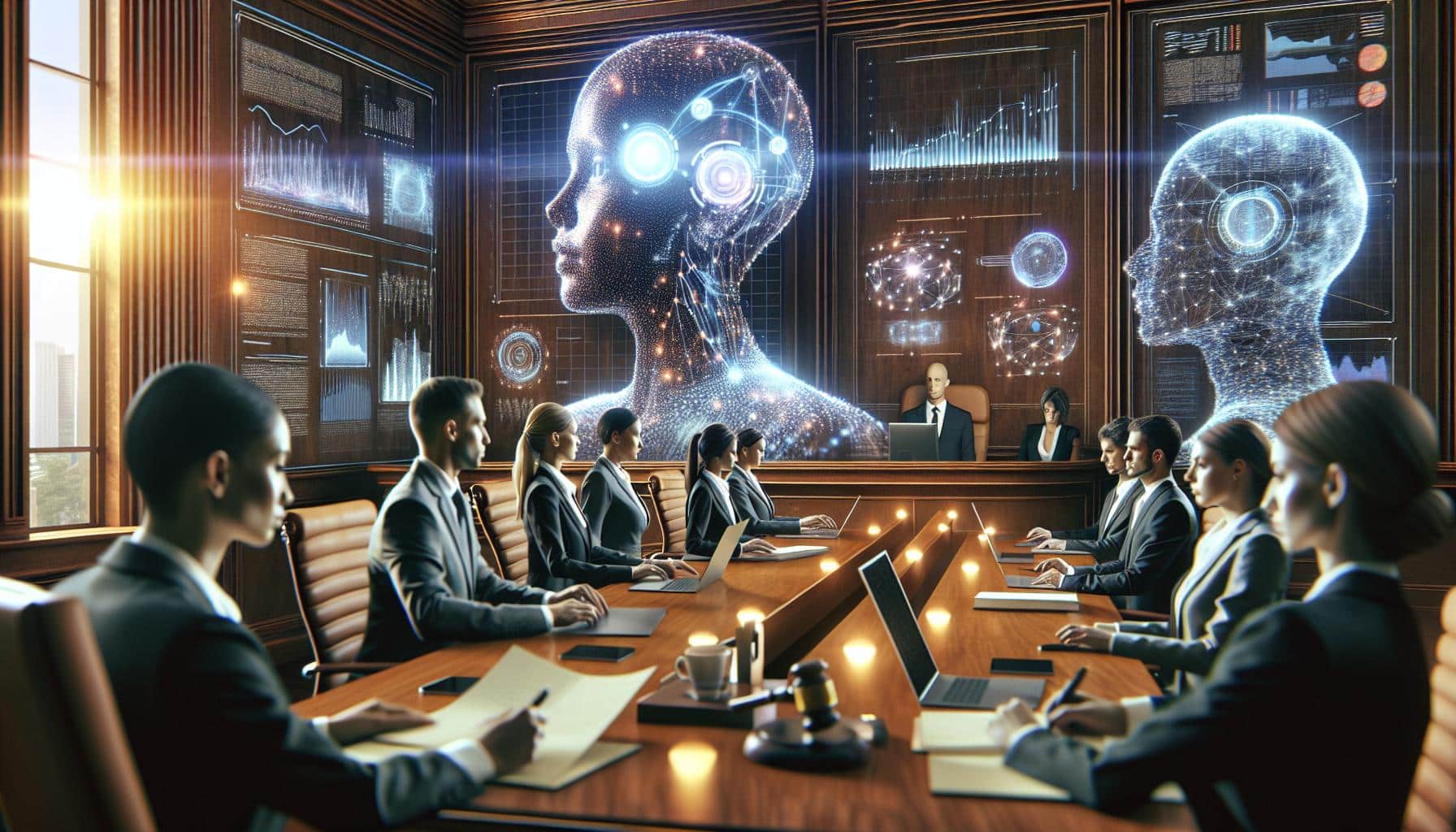Introduction to Generative Artificial Intelligence (GenAI)
Generative Artificial Intelligence (GenAI): The Game Changer in 2021
Generative Artificial Intelligence (GenAI) has emerged as a revolutionary technology in the past year, transforming various industries worldwide. This cutting-edge technology is capable of generating a diverse range of content, including images, text documents, and other media. Unlike traditional AI programs, Generative AI is not bound by rules and programming, allowing it to be creative and produce human-like content. With its ability to continuously learn and refine itself, GenAI has drawn considerable attention from specialized fields, including the legal industry.
The Impact of Generative AI in the Legal Industry
An Innovative Solution for the Legal Industry: Generative AI Makes Its Mark
The legal industry, known for its intellectual rigor and meticulous attention to detail, has historically lagged behind in adopting technology. However, the incorporation of Generative AI has the potential to revolutionize legal work. This transformative technology has the capability to handle tasks such as legal research, due diligence, and document summarization. By taking over mundane tasks, Generative AI allows lawyers and advocates to focus on aspects that require a human touch, such as context and understanding.
Advantages and Challenges of Using Generative AI in the Legal Field
Harnessing the Power of Generative AI: Advantages and Challenges for Lawyers
While Generative AI offers numerous benefits in the legal industry, it also raises certain concerns. The technology can provide intelligent and logical answers to legal problems by leveraging information from the World Wide Web. However, this does not guarantee a legally sound solution. Moreover, contradictory information on the web can pose a challenge for Generative AI in delivering accurate results. Additionally, the veracity of the information sources remains an unanswered question, as an incorrect source can lead to incorrect solutions.
Intellectual Property and Confidentiality Issues with Generative AI
Navigating Intellectual Property and Confidentiality Concerns in the Age of Generative AI
The rise of Generative AI has brought to light crucial issues around intellectual property and confidentiality. Determining ownership of intellectual property becomes complex when two individuals use Generative AI to solve a similar problem, resulting in identical solutions. It is challenging to trace the original creator of the work when AI technology is involved. Furthermore, maintaining confidentiality in the legal profession is crucial, and Generative AI must ensure that sensitive information remains secure, safeguarding against unauthorized access by rival lawyers or advocates. However, striking a balance between information compartmentalization and efficient learning by Generative AI poses a challenge.
The Role of Generative AI in the Legal Industry
Generative AI: An Ally, Not a Replacement for Advocates
Despite its capabilities, Generative AI cannot replace human advocates. While it offers logical solutions based on existing facts and logic, it lacks the ability to consider newly discovered evidence or facts later on. Instead, Generative AI can be a powerful tool for skilled advocates, empowering a single individual equipped with AI technology to compete against an entire team without it. Properly developed, Generative AI has the potential to transform the legal industry, enabling advocates to work more efficiently, without displacing their essential role.
Conclusion and Author’s Opinion
Generative AI: A Transformative Force for the Legal Industry
In conclusion, Generative AI has emerged as a game-changing technology in the legal industry. While it offers significant advantages in handling time-consuming tasks, it is not a substitute for human advocates. The technology’s logical approach and continuous learning ability make it a valuable tool for skilled legal professionals, enhancing their efficiency and competitiveness in the field. With further development and understanding, Generative AI has the potential to revolutionize the legal industry in a way that complements, rather than replaces, the essential role of advocates.
Analyst comment
Positive news:
Generative AI is described as a game-changing technology in the legal industry, with the potential to revolutionize legal work by handling tasks such as legal research and document summarization. It is seen as an ally to advocates, enhancing their efficiency and competitiveness without replacing their essential role. With further development, Generative AI has the potential to transform the legal industry in a complementary way, making it a positive advancement.
As an analyst, I predict that the market for Generative AI in the legal industry will experience growth as more firms adopt this technology to streamline their processes and enhance the productivity of their legal professionals. However, challenges related to intellectual property, confidentiality, and accuracy of results will need to be addressed for widespread adoption.













